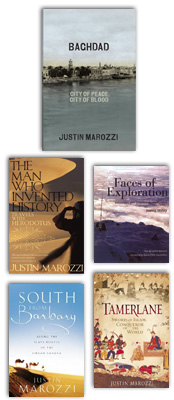There’s bravery wherever you look in Mogadishu. One afternoon 38 women in brightly coloured robes are launching the Somali Women’s Association under the big blue sky and on the sandy beaches at the headquarters of the African Union Mission in Somalia (Amisom).
Those from the ten city districts held by al-Shebab, aka al-Kebab, the delusional al-Qaeda-allied Islamists, are risking their lives to be here. The dresses are deliberate defiance towards the women-fearing Islamists who demand that they wear heavy shrouds on pain of whipping.
Asha Omar Geesdir, the charismatic chairwoman, says they will open a free school, offer adult literacy classes, loans and free medicine. A generation has missed out on schooling and Islamist education consists of teaching people how to blow themselves up.
“Al-Shebab talk about women as if we are already dead,” Geesdir says. “We want to live, but all they talk about is paradise after death. They rape, kill, torture and take women they think are beautiful by force.”
My theory about Islamists is that they’re very cross because they don’t get enough sex. In fact, I don’t think they’re very good with the ladies at all. They should take lessons from Sheikh Ahmed Mursal Adam, the 75-year-old presidential gardener, who has had 27 wives and has 200 children and grandchildren. Beat that, beardies.
Inner city blues If you think Boris Johnson has a lot on his plate, spare a thought for Mohammed Ahmed Nur, the new mayor of Mogadishu. Much of the city looks like postwar Dresden, and is in the hands of an enemy whose concept of public services is limited to beheading, flogging and stoning. Nur, a Somali Brit, is undaunted. First on his agenda is rubbish collection. The streets haven’t been cleaned since 2006. The mayor is getting fuel on credit and borrowing trucks. Perhaps Boris could lend a hand.
His approach must make him a marked man. The mayor of Mog fixes me with a steely look. “My death is already determined,” he replies.
I head back to my campsite at the airport in time for a magnificent sunset. In the background the rat-a-tat-tat of machinegun fire. How many capital cities are there where you can go for a jog along a runway dodging mortars? In my cabin is a Bomb Threat Checklist. Among the questions I must ask a caller: when is the bomb going to explode? What does it look like? Did you place it? Why? What is your address? Kebabed On the frontline I observe fighting between Amisom and al-Kebab. Al-Uruba Hotel, once Mogadishu’s premier holiday spot, with fabulous views across the wind-ruffled Indian Ocean, is now a shell.
Rubble lines the corridors, sandbags have replaced windowpanes. The beardies, holed up in another shell, are attacking an Amisom position, not to mention a US warship, so it’s time to flush them out.
Somali troops scurry forward.
A Ugandan colonel orders the tanks in and a flurry of rockets slams into the block a few hundred yards away. Smoke drifts lazily into the skyline, then silence. “I think they’ve gone now,” says Major Ba-Hoku Barigye, Amisom’s ebullient spokesman.
Biting remarks The preferred form of transport for non-al-Qaeda visitors here is the Casspir, a robust South African armoured personnel carrier. Ugandan troops ferry me across town in one for a meeting with the portly Prime Minister, Omar Abdirashid Ali Sharmarke, the son of a former prime minister who was assassinated in 1969.
As a boy Sharmarke remembers a giraffe wandering around the ruler’s compound and a crocodile in the pond. These days he’s more interested in the predators outside. The international community is pouring billions into Afghanistan, but al-Qaeda have moved on and like the look of Somalia. We’re fiddling while Mogadishu burns.
Sharmarke has a stark warning: “Give al-Qaeda the space, and they’ll come back and bite you.”
My treat There isn’t much time for social life in Mogadishu and the dining options are limited, so I have to wait to return to Nairobi before tucking into Somali treats of broiled camel, fried goat and sweet-sour camel’s milk. Like Mogadishu, not for those of a sensitive disposition.
Justin Marozzi is author of The Man Who Invented History: Travels with Herodotus (John Murray)

